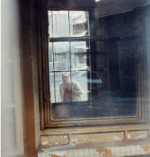Belonging and Heimat

Aims and Objectives
This project aims to foster an exchange between English and German speakers on such questions of belonging, Heimat and citizenship. It will involve academics in theology and ecology, practitioners in regeneration and landscape architecture and those with commitments to place among communities of the faithful in the Christian churches of both countries.
The particular objectives are: to foster an inter-disciplinary engagement on belonging and Heimat through electronic exchange of existing research material; to organise workshops in the UK and Germany for discussion stimulated by the exchange; and to publish a book based on the discussions.
The more permanent legacy will be a deeper mutual respect and understanding of the various interpretations of belonging and Heimat and a sense that we might negotiate shared ways of belonging together in intellectual understanding and faith so as to better secure the future.
The Heimat & Belonging Project has developed from research on a theological critique of sustainability carried out by Professor John Rodwell for the M.B. Reckitt Trust , a charitable foundation that funds work challenging social and economic assumptions and releasing energy for change.
Background
A renewed interest in the theology of place has moved away from narrower preoccupations with sacred space to a wider engagement with ideas of how people of faith belong in the world, and what the particularities of geography have to do with redemption. In such a light, belonging is about mutual entanglements of necessity and freedom that are negotiated by people in place.
Meanwhile, research by landscape ecologists has shown how difficult it is for current planning processes in the UK to incorporate multifunctional notions of place that integrate social and economic concerns with wider understandings of environment and culture. In particular, interpretations of place and belonging in the regeneration of post-industrial landscapes are very material and shallow. "Securing the Future" (as the UK government calls sustainability) takes little account of the often contested histories of places, and the price people have paid to live their lives there.
Similar concerns about the principles and realities of regeneration and sustainability have been raised in Germany where the term which expresses "belonging" is Heimat. The original meaning of this word is "home ground" but over a millennium it has acquired a rich variety of resonances and, after its suborning by National Socialist ideology, is now attracting a new and wide interest, not only in the environmental realm but also in arts like film, theatre and literature.
Heimat is fundamentally about who you are and where you belong, is a place where you know who you are and that you belong there. There is often a measure of reciprocal gift and acceptance between person and place and more recent German interpretations favour a more dynamic perspective, such that Heimat can be permanently appropriated in a way that articulates social change. This circle of thinking has recently been completed by theological reflection on Beheimatung as an essential process in social construction, the planning process and the salvation of built environments.
Activities
An initial informal scoping workshop for the Heimat & Belonging Project was held on Friday 6 February 2009 at the University of Manchester. Fifteen theologians, philosophers, landscape architects, restoration ecologists and a garden designer came together to share their own understandings of "belonging" and to scope a possible research agenda. Funding has now been secured from the Jean Monnet Centre of Excellence at Manchester University towards a conference in May 2010 with ten or so papers on these emerging themes from English and German-speaking delegates.
John Rodwell is also working on a theological critique of ‘ecosystem services’, a concept which, through the 2003 Millenium Ecosystem Assessment and 2011 UK National Ecosystem Assessment and its 2014 Follow-On, has become determinative in the delivery of environmental policy in this country and elsewhere in Europe. As an independent member of the Monitoring & Evaluation Steering Group of Defra’s Nature Improvement Area programme, he provides expert advice on the ‘spiritual’ component of cultural ecosystem services.
In 2013, for the Biodiversity Ecosystem Services Sustainability (BESS) programme, he convened a two-day workshop in which practising artists, people of faith, scientists, conservationists and environmental professionals reflected together on how spiritual and aesthetic experiences fit within the wider frame of ecosystem services and what indicators and outcomes they might have. A download of the workshop report (Rodwell, J.S. (2013) Aesthetic & Spiritual Responses to the Environment) can be obtained from the BESS website at http://www.nerc-bess.net/index.php/ documents/2-uncategorised/129-workshop-report-aesthetic-spiritual-responses.
Further papers on this work have been given in September 2013 in Alfriston, in May 2014 in Swindon and Velp in The Netherlands, in June 2014 in Liverpool and at Wiston House in Sussex in July 2014. Research at the moment is focusing on the place of ‘wonder’ and ‘risk’ in experiences of nature and on the relationship of human well-being to environmental condition, links to which were initially explored in an AHRC/ESRC Research Network (Rodwell, J.S. (2011) ‘Being well in creation’ in The Practices of Happiness, ed. J. Atherton, E. Graham & Ian Steedman, London & New York: Routledge). The notion of ‘place’, as where we and nature find ourselves together, links this research theme with the ‘Belonging & Heimat Project’.
The image, courtesy of Plantlife, shows speakers including Lord de Mauley, Parliamentary Under-Secretary of State for Natural Environment & Science, seated second right, listening to HRH Prince Charles at the Wiston House conference, where John Rodwell, third left, spoke on aesthetic and spiritual values of grasslands.
